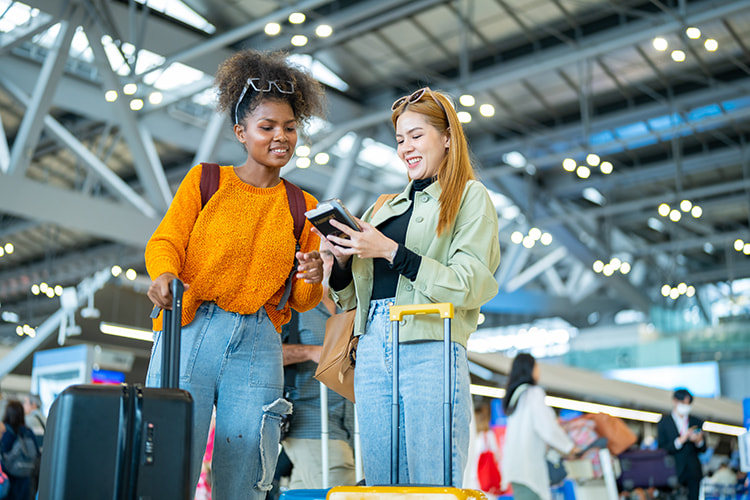
Traveling abroad often means exchanging your U.S. dollars for the local currency. However, currency exchange is not a dollar-for-dollar transaction. The value of your money varies depending on the country and its economic conditions, and exchange rates fluctuate regularly. Understanding exchange rates and how to handle currency exchanges can save you time, money, and stress during your travels.
What Are Exchange Rates?
Exchange rates determine how much one currency is worth compared to another. For instance, a U.S. dollar might buy more pesos in Mexico than euros in France. These rates are influenced by the economic conditions of the respective countries and are subject to daily changes.
For travelers, this means the value of your money may increase or decrease depending on when you exchange it.
Where to Exchange Currency
To get the best value for your money, choose reputable places for currency exchange. Smarter Travel recommends:
- Banks: Often provide fair exchange rates with lower fees.
- Hotels and Post Offices: Convenient options with competitive rates.
- American Express Offices: Reliable for travelers.
Avoid high-cost locations such as:
- Airports
- Train stations
- Tourist-heavy areas
Additionally, be wary of exchange rates that seem too good to be true, as these may involve scams or counterfeit money.
Credit Cards and Currency Conversion
Some credit cards offer automatic currency conversion without extra fees, but reliance on cards may not always work abroad. Outside the U.S., credit and debit cards are not universally accepted, especially in smaller establishments or rural areas. Always carry local currency as a backup.
Remember foreign transaction fees and read your credit card provider’s terms. These fees can add up and impact your travel budget.
Exchange Methods
There are two main types of exchange rate systems:
Floating Currency:
- Determined by the market based on supply and demand.
- Common in stable economies like the U.S., U.K., Canada, and Australia.
- Adjusts automatically to fluctuations in value.
Pegged Currency:
- Fixed to another stable currency (e.g., the U.S. dollar) by the government.
- Common in developing countries with less stable economies.
- Tip: Only convert what you need in these currencies to avoid risks associated with volatility.
Best Practices for Currency Exchange
To maximize the value of your money and avoid excessive fees:
Convert Currency Before You Travel:
- Before departure, exchange money in the U.S. to avoid higher fees in tourist areas abroad.
Use Banks and ATMs Abroad:
- Banks and ATMs often offer competitive exchange rates.
- Be aware of potential ATM withdrawal fees and consider taking out more significant amounts in fewer transactions to save money.
Check Fees:
- Compare flat fees versus percentage-based charges.
- If the fee is flat, exchange a larger amount at once to minimize overall costs.
Know Your Credit Card Policies:
- Understand any fees for foreign transactions or currency conversions.
- Some cards charge a percentage of your purchase total, which can add up over time.
Track Exchange Rates:
- Use apps or websites to monitor exchange rates and identify favorable times to convert money.
Final Thoughts
Understanding exchange rates and planning currency exchanges can make international travel more cost-effective. You can avoid unnecessary expenses and make the most of your trip by choosing the right locations, tracking fees, and having a mix of cash and card options.
Whether navigating the bustling streets of Tokyo or enjoying a café in Paris, being informed about exchange rates ensures your money goes further, leaving you free to focus on enjoying your adventure.